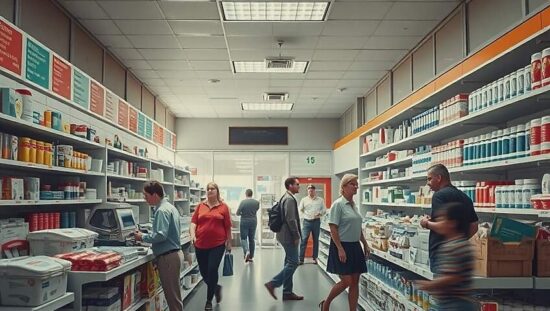The German drugstore chain DM is poised to expand its presence in the health sector, a move drawing scrutiny over its potential impact on the struggling pharmacy landscape. Christoph Werner, CEO of DM, insists the venture won’t accelerate the decline of independent pharmacies, a phenomenon increasingly attributed to factors like succession problems and changing consumer habits.
DM’s planned integration of an online pharmacy on its website will initially focus on over-the-counter medications requiring a pharmacist’s expertise, but not a prescription. Werner emphasized that prescription medications, the core revenue driver for most pharmacies, remain outside of DM’s immediate focus, mitigating the perceived threat. He stressed DM’s identity remains rooted in the drugstore model, framing the shift as a customer-driven adaptation of the product range.
Speculation regarding a dedicated online pharmacy branded under DM’s popular “Mivolis” private label was firmly dismissed by Werner, citing legal constraints. He explained that restrictions on the scope of Mivolis’s offerings preclude its use in a pharmacy context, effectively ruling out the possibility.
However, the expansion occurs against a backdrop of a shrinking pharmacy network – a reality Werner acknowledges. Addressing the challenge of round-the-clock emergency pharmaceutical services, he proposed a novel approach: leveraging existing hospital pharmacies, which already possess pharmaceutical stocks, to take on expanded emergency service roles, potentially alleviating the current reliance on identifying pharmacies on rotation.
Acknowledging the legal framework limiting their operational possibilities, Werner alluded to potential future adjustments, hinting at a willingness to explore models seen internationally, such as pharmacies integrated within grocery stores or drugstores. Currently, employing pharmacists within DM stores is prohibited, but Werner indicated a readiness to embrace alternative structures should regulations evolve. This subtle positioning underscores the ongoing debate surrounding the future of pharmaceutical distribution in Germany and the role large retail chains might play in reshaping it, raising questions about fair competition and the preservation of the pharmacist’s professional role.





